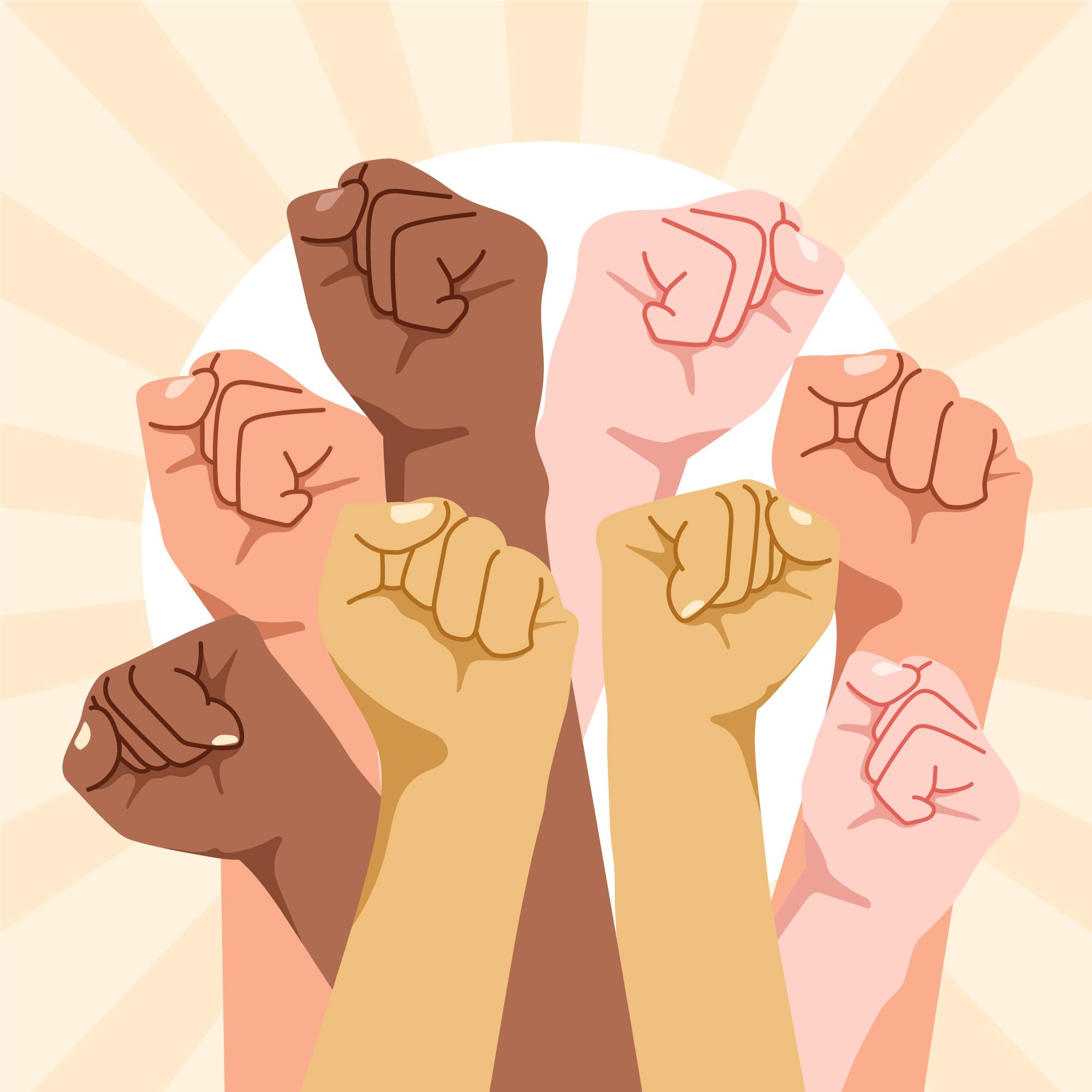Achieving Equality and Harmony: The Uniform Civil Code in India
# Archiving Equality and Harmony: The Uniform Civil Code in India
India is a diverse and pluralistic nation, where people of different religions, cultures and traditions coexist. However, this diversity also poses a challenge for the legal system, which has to deal with various personal laws that govern the aspects of family life, such as marriage, divorce, inheritance, adoption and maintenance. These personal laws are based on the scriptures and customs of each major religious community, and often differ from each other in terms of rights, obligations and remedies.
The Uniform Civil Code (UCC) is a proposal to replace these personal laws with a common set of laws that would apply to all citizens equally, regardless of their religion, gender or sexual orientation. The idea of UCC is enshrined in Article 44 of the Constitution of India, which states that "The State shall endeavour to secure for the citizens a uniform civil code throughout the territory of India". However, this article is part of the Directive Principles of State Policy, which are not legally enforceable, but only serve as guidelines for the government.
The UCC has been a contentious and controversial issue in Indian politics and society for decades. It has been seen by some as a way to promote national integration, gender justice, equality and dignity of women, and secularism. It has been opposed by others as an infringement on the religious freedom, identity and autonomy of minority groups, especially Muslims. The debate has been fueled by various judicial pronouncements, legislative initiatives and social movements that have highlighted the need for or the problems with the UCC.
In this article, we will examine the arguments for and against the UCC, the challenges and suggestions in its implementation, and the way forward for achieving a balance between unity and diversity in India.
## Arguments for UCC
- **Gender justice:** One of the main arguments in favour of UCC is that it would ensure equal rights and protection for women across all communities, especially in matters of marriage, divorce, inheritance and maintenance. Many personal laws are patriarchal and discriminatory towards women, such as allowing polygamy, unilateral divorce, unequal inheritance shares, or inadequate maintenance. A UCC would eliminate these gender biases and empower women to assert their rights and dignity.
- **National integration:** Another argument in favour of UCC is that it would foster a sense of national identity and solidarity among all citizens, irrespective of their religious affiliations. A UCC would reduce communal tensions and conflicts that arise from the application of different personal laws to different groups. It would also promote a common citizenship and a secular polity that respects diversity but does not privilege any particular religion over others.
- **Legal reform:** A third argument in favour of UCC is that it would simplify and rationalize the legal system by removing the complexities and ambiguities that arise from having multiple sources of law for different aspects of family life. A UCC would bring uniformity, clarity and consistency in the interpretation and application of law by the courts and other authorities. It would also reduce litigation costs and delays for the parties involved.
## Arguments against UCC
- **Religious freedom:** One of the main arguments against UCC is that it would violate the fundamental right to freedom of religion guaranteed by the Constitution of India. Article 25-28 of the Constitution allow every person to profess, practice and propagate their religion freely, subject to public order, morality and health. Personal laws are seen as an integral part of one's religious identity and expression, and any interference with them would amount to coercion or imposition by the state. A UCC would disregard the diversity and pluralism of Indian society and impose a homogenous code that may not suit the needs or preferences of different communities.
- **Minority rights:** Another argument against UCC is that it would undermine the rights and interests of minority groups, especially Muslims, who constitute about 14% of India's population. Muslims have their own personal law based on Sharia or Islamic law, which they regard as divine and immutable. A UCC would deprive them of their autonomy and self-regulation in matters of personal law, which they have enjoyed since colonial times. A UCC would also be seen as a majoritarian move by the Hindu-dominated state to assimilate or subjugate Muslims into a uniform culture.
- **Practical difficulties:** A third argument against UCC is that it would be difficult to implement in practice given the diversity and complexity of Indian society. There is no consensus or clarity on what constitutes a uniform civil code or how it should be formulated or enforced. There are also variations within each community based on region, sect, caste or class that may not be easily accommodated in a single code. Moreover, there may be resistance and backlash from various sections of society who may perceive UCC as a threat to their traditions or values.
## Challenges in implementing UCC
- **Lack of political will:** One of the major challenges in implementing UCC is the lack of political will and consensus among the various parties and stakeholders involved. The UCC has been a contentious and polarizing issue that has been used by different parties for political gains or losses. The ruling Bharatiya Janata Party (BJP) has been advocating for UCC as part of its Hindutva agenda, while the opposition parties and minority groups have been opposing it as a violation of secularism and minority rights. There has been no sincere dialogue or consultation among the parties to reach a common ground or a compromise on the issue.
- **Lack of social awareness:** Another challenge in implementing UCC is the lack of social awareness and education among the masses about the need for or the benefits of UCC. Many people are unaware of their rights and duties under the existing personal laws or the problems and anomalies that they face due to them. Many people are also influenced by religious leaders or community elders who propagate myths or misconceptions about UCC or instill fear or prejudice against it. There is a need for creating awareness and sensitization among the people about the rationale and objectives of UCC and dispelling the doubts and apprehensions that they may have.
- **Lack of legal expertise:** A third challenge in implementing UCC is the lack of legal expertise and resources to draft, enact and enforce a comprehensive and coherent code that would cover all aspects of family life. There is no existing model or precedent for UCC in India or elsewhere that can be easily adopted or adapted. There are also multiple issues and dimensions that need to be considered and addressed while framing a UCC, such as constitutional validity, human rights, gender justice, cultural diversity, social change, etc. There is a need for engaging legal experts, scholars, activists, representatives of various communities and other stakeholders in the process of drafting and debating a UCC that would be acceptable and beneficial to all.
## Suggestions for implementing UCC
- **Incremental approach:** One suggestion for implementing UCC is to adopt an incremental and gradual approach rather than a sudden and drastic one. Instead of imposing a uniform code on all citizens at once, the government can start with reforming specific areas or issues that are common or urgent for all communities, such as marriage, divorce, inheritance, etc. The government can also take cues from the judicial pronouncements or legislative initiatives that have already brought some changes or uniformity in some aspects of personal law, such as banning triple talaq, allowing inter-faith marriages, granting equal inheritance rights to daughters, etc. The government can also learn from the experience of Goa, which has a common civil code for its citizens since colonial times, with some special provisions for different communities.
- **Consensual approach:** Another suggestion for implementing UCC is to adopt a consensual and participatory approach rather than a coercive and unilateral one. Instead of dictating a uniform code to all citizens without their consent or consultation, the government can initiate a dialogue and discussion with various parties and stakeholders involved in the issue, such as political parties, religious groups, civil society organizations, women's groups, etc. The government can also conduct surveys or referendums to gauge the public opinion or preference on UCC or its specific aspects. The government can also create a platform or mechanism for resolving disputes or grievances that may arise due to UCC or its implementation.
- **Progressive approach:** A third suggestion for implementing UCC is to adopt a progressive and dynamic approach rather than a regressive and static one. Instead of basing a uniform code on outdated or oppressive norms or practices that may violate human rights or dignity of individuals, especially women, the government can base it on modern and progressive principles that would uphold equality, justice, liberty and fraternity for all citizens. The government can also ensure that the uniform code is flexible and adaptable to changing times and circumstances, and allows for periodic review and revision as per the needs or demands of society. The government can also ensure that the uniform code is inclusive and respectful of the diversity and pluralism of Indian society, and does not impose a monolithic or hegemonic culture on anyone.
## Conclusion
The Uniform Civil Code is a complex and controversial issue that has implications for the legal system, the political system and the social system of India. It has both advantages and disadvantages for different sections of society, especially women and minorities. It has both supporters and opponents who have strong arguments for their positions. It has both challenges and suggestions for its implementation.
The UCC is not an end in itself, but a means to an end - that end being archiving equality and harmony among all citizens of India.












Comments
Post a Comment
Thanks, For Your Valuable Comment